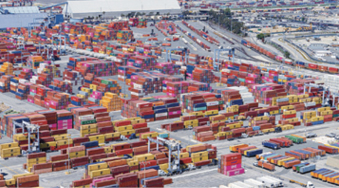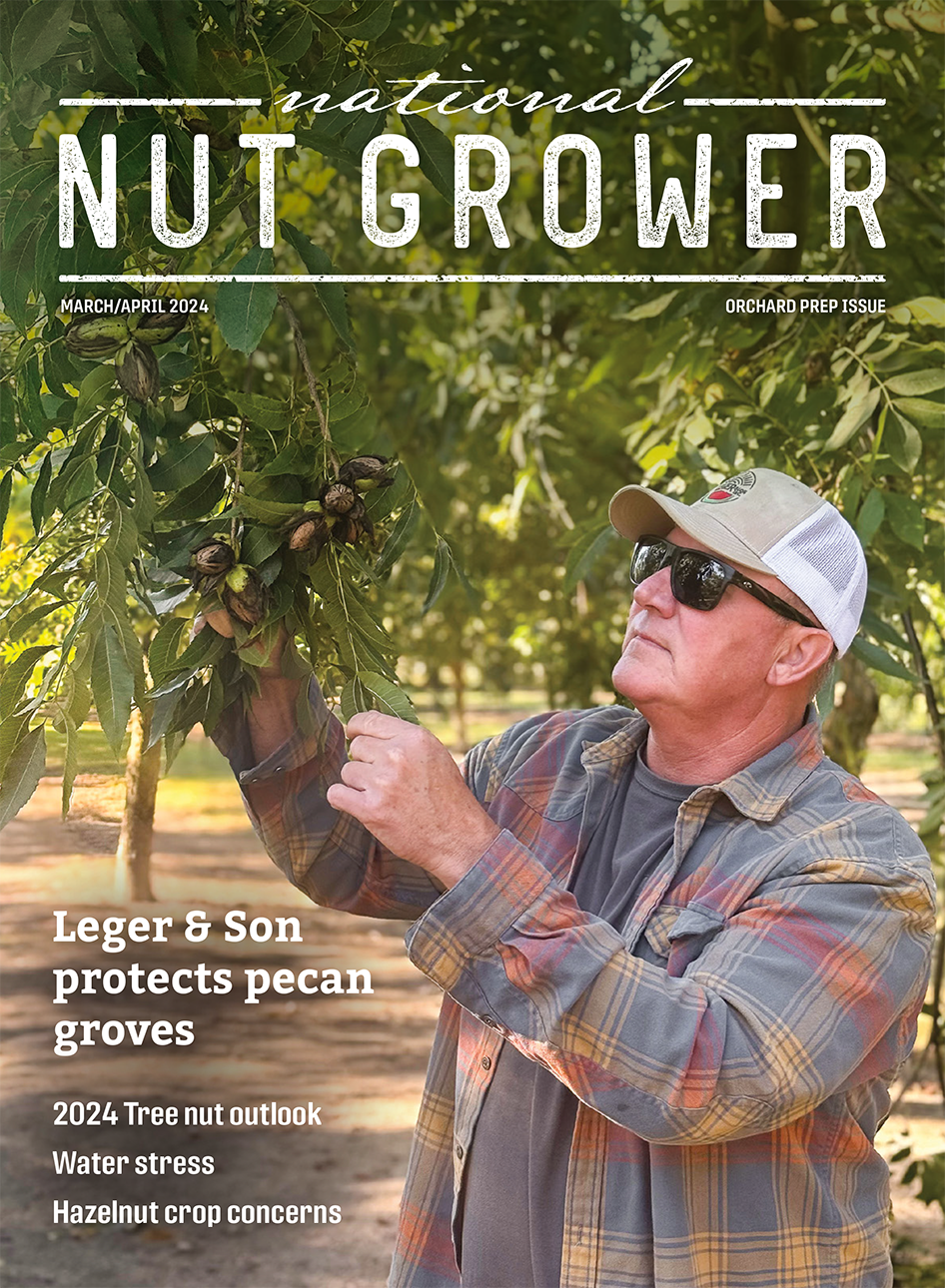
Nov 24, 2021Supply chain snarls slow goods to and from farms
Despite strong demand for their products overseas, California farmers say their agricultural exports remain stuck in a complex supply-chain labyrinth that has hindered their ability to ship goods to customers.
Shipping delays have also slowed delivery of parts, equipment and other materials to farms, packinghouses and processing facilities. This has put more strain on a system that producers say has only gotten worse in the past year.
On the export side, farmers and shippers face a financial squeeze because they can’t get their cargo on vessels to fulfill orders, said Roger Isom, president and CEO of the California Cotton Ginners and Growers Association and Western Agricultural Processors Association. He said he knows of two nut processors that did not ship any product in October because their loads did not make the scheduled sailing. That means no sales and no income.
“We’ve got almonds and walnuts stacked to the ceiling right now,” Isom said. “In fact, we’re running out of bins because they’re not moving.”
A lack of truck drivers has complicated the problem, he said, as farms harvest product with “nobody to move it out.” He said he knows of one cotton gin that’s not operating seven of its trucks because there aren’t enough drivers.
Bob Costello, chief economist at the American Trucking Association, estimated current driver shortage nationwide has risen to 80,000—an all-time high. Based on driver demographic trends, the shortage could surpass 160,000 by 2030, he added.
Amid peak shipping season for California tree nuts—70% of which are exported—Isom said shipping delays and driver shortages have led to another problem: a lack of space to store cargo waiting to be shipped.
So desperate are processors to get shipments to their customers that they’ve resorted to paying more to move pistachios and walnuts via rail to ports in Texas and the East Coast, and flying bales of cotton to Peru, because “you don’t want to lose the market share,” Isom said.
On the import side, Isom said supply-chain hiccups could affect farmers’ ability to replace 12,000 tractors by 2023 to meet the state’s air-quality goals. Most machine parts are manufactured overseas, he noted, even if the equipment itself is assembled in the U.S.
As a walnut grower, processor and shipper in Glenn County, Bill Carriere said one of his biggest headaches this year came when packaging equipment the company ordered was delayed a month.
This left no time to do test runs and to work out initial kinks. Not only did it cost the company money, he said, but the packing-line challenges created delays for shipments that went on to face port logjams.
“It’s like a cascading problem,” Carriere said.
He’s losing sales, he said, because he now ships just 15 to 20 containers a week, whereas he normally ships about 30. Adding to the sting are the increased costs, he said, not just on the price of shipping itself but the extra fees that rack up when shipments are delayed. All this hurts growers, he said.
Supply-chain disruptions have shortened availability of pallets, boxes, bins and other supplies, with some items doubling in price, said Jim Jasper, owner and president of Stewart and Jasper Orchards in Stanislaus County, which grows, processes and markets almonds. He’s had to idle trucks and forklifts because he can’t get parts to repair them, he added.
The company handles about 2% of the state’s almond crop and ships 99% of its exports through the Port of Oakland. With shipments delayed, Jasper said product becomes backed up in bins and boxes, making storage a challenge. If the backlog does not improve, he said, he will need to store off site.
“There’s not a lot of areas out there, and when you do find something, it’s not cheap because they know it’s going to be in great demand,” Jasper said.
Not having the right bottles, caps, corks, labels and other materials has put some wine suppliers “months behind in some production areas,” said Joe Bica, president and CEO of U.S. Wine Exports in Ohio. The company produces and buys American wine, most of it from California. When it ran short of its usual bottles recently, Bica said he had no choice but to switch to what was available—at double the cost.
Even if he’s willing to pay more, San Benito County farmer Joe Zanger, who runs a winery, said changing bottles may not always be practical. For example, he would not bottle red wine in a clear glass, he said.
“When you’re going through distribution, you can’t just switch your packaging around,” he said. “It becomes a problem with your buyers. Customers don’t recognize it on the shelf if it’s in a different bottle.”
Bica, whose company ships weekly from the ports of Oakland and Long Beach, said containers scheduled for pickup and shipment are now delayed or canceled 90% of the time. With warehouse space becoming scarce and storage fees skyrocketing, he said his company has looked at rerouting shipments to Washington state or Miami. That could potentially speed delivery, he said, but the added cost makes it “a wash.”
Peter Schneider, president of Fresno-based TGS Logistics, a drayage company, said clearing empty containers from terminals would allow ships to come through more quickly and cargo to move faster. He estimated at least 120,000 to 150,000 empty containers need to be evacuated to free up dock space. An additional10,000 to 15,000 are “on the street,” with at least 7,000 to 8,000 of those on chassis that are in short supply.
He said shipping companies usually send so-called “sweeper” ships to pick up nothing but empty containers and send them back to where they are needed most—usually China, where most imports come from. But with current shipping rates so high, Schneider said steamship lines would rather use their vessels to transport import cargo, from which they can make “massive profits.”
Isom said the good news is policymakers are finally working on solutions to implement. They include getting containers out of ports and into empty lots, maybe even fairgrounds.
“The bad news,” he added, “is it’s going to take time.”
– Ching Lee, California Farm Bureau Federation







